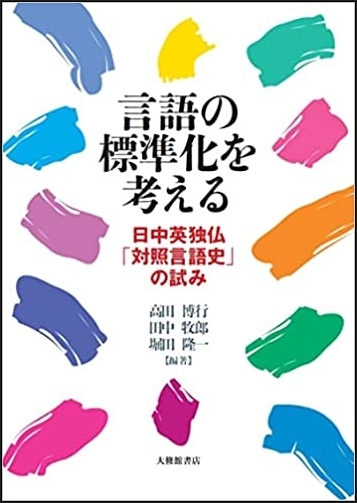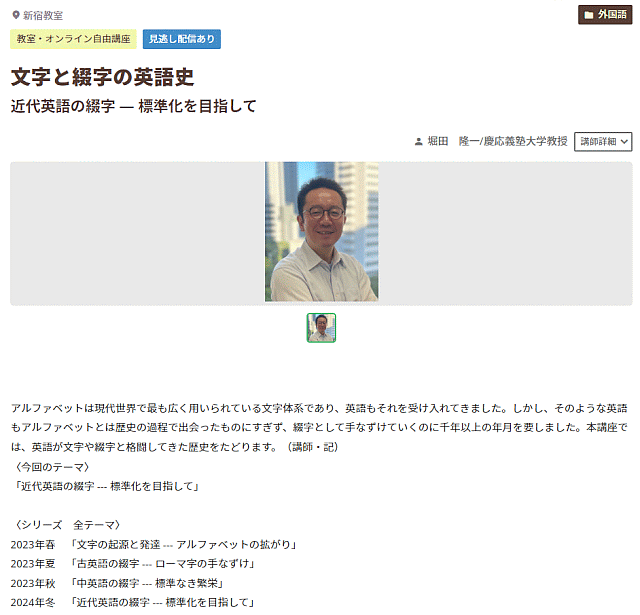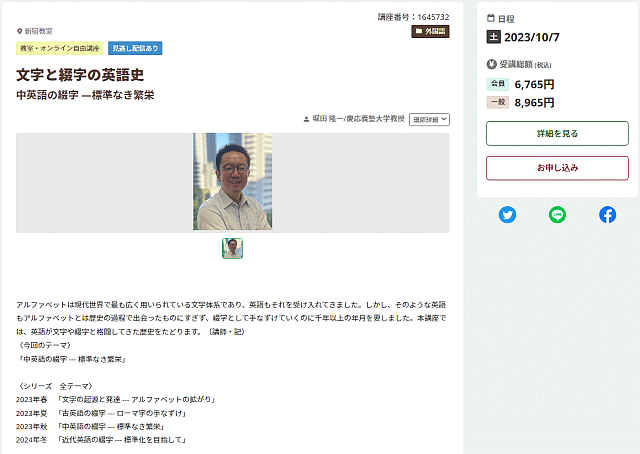2025-11-08 Sat
■ #6039. New Zealand English におけるマオリ借用語の発音をめぐる社会言語学 [sociolinguistics][new_zealand_english][maori][borrowing][loan_word][pronunciation][orthography][language_planning][writing][standardisation]
NZE には,マオリ語からの借用語が多く入っている.地名や人名などの固有名詞はもちろん,一般語も多く流入している.英語の文脈でマオリ借用語をどのように発音するか,という問題について,Bauer (398--99) が興味深い論点を示している.
The proper pronunciation of Maori is currently a controversial issue in New Zealand, and it is a subject on which feelings run high. The issue is at heart a political rather than a linguistic one, since it is clear linguistically that there is no good reason to expect native-like Maori pronunciation in words which are being used in English. None the less, it has the linguistic consequence that there is a good deal of variation in the way in which Maori loanwords are pronounced in English, with variants close to native Maori norms at the formal end of the spectrum, and much more Anglicised versions --- sometimes irregularly Anglicised versions --- at the other. To give some idea of the variation this can lead to, I present below a few place-names with a Maori pronunciation and one extreme English pronunciation. Variants are heard anywhere on the continuum between these two extremes.
この文章の後に具体例がいくつか挙げられているが,たとえばマオリ語でニュージーランドを表わす Aotearoa (長く白い雲の土地)は,マオリ語母語発音では /aːɔtɛːaɾɔa/ となり,これで発音する英語話者もいれば,そこから完全に英語化した /eɪətiəˈɹəʊə/ として発音する者もいる.また,この2つを両極として,中間的な発音も多数あり得るというのだから,揺れの激しさが想像される.
この揺れの背景には,英語とマオリ語の音韻体系の差異,マオリ語のリテラシー,オーディエンスへの配慮,マオリ語への立ち位置や思い入れ,言語計画・政策上の立場など,様々な言語学的,そしてなかんずく社会言語学的な要因が作用しているのだろう.国号の発音を1つとっても,そこに話者の態度や立場が色濃く反映している可能性があるということだ.
なお,マオリ語をローマ字で表記する際の綴字は,1830年代後半から1840年代までには標準化されていたという (Bauer 398) .意外と早かったのだな,という印象だ.
・ Bauer L. "English in New Zealand." The Cambridge History of the English Language. Vol. 5. Ed. Burchfield R. Cambridge: CUP, 1994. 382--429.
2025-07-01 Tue
■ #5909. 「英語史から読み解く これからの英語との向き合い方」 --- ANAの季刊誌『ていくおふ』第179号に掲載されています [notice][hel_education][helkatsu][standardisation][world_englishes][variety][variation][language_change]

【 はじめに 】
このたび,ANAホールディングズが発行する季刊誌『ていくおふ』第179号(2025年夏号)に,「英語史から読み解く これからの英語との向き合い方」と題するエッセイを寄稿いたしました.作り込んだ図表を含む8ページにわたる,中身の詰まった記事です.
なぜ航空業界の発行する雑誌に「英語史」の話題が,と驚かれた方もいらっしゃるかもしれません.私も寄稿のお話をいただいたときには少し考え込んだのですが,航空といえば国際性,国際性といえば英語ですので,思ったよりも大きな飛躍はありません.考えているるうちに,むしろ英語史的な視点を導入するのにうってつけの機会ではないかと感じ始めました.
【 「標準英語」はいつから標準だったのか? 】
今回の記事では,1500年以上にわたる英語の歴史をふり返りながら,「標準化」と「脱標準化」という2つのベクトルのせめぎ合いに注目しました.英語はその誕生以来,外部の言語と接触し,地域的・社会的・文化的な要因によって常に姿を変えてきた言語です.
例えば中世の英語は,現代のような「正しい英語」という規範が存在しない,きわめて多様な状態にありました.ある時代にはフランス語に押されて地位を失いましたし,またある時代には,印刷術や教育制度の普及によって「標準英語」が形成されていくことになりました.しかし,それはロンドンの中・上流階級の言葉遣いをモデルにした,ふわっとして捉えどころのない虚構的な代物にすぎませんでした.
【 「世界諸英語」の時代へ――英語の多様性は今に始まったことではない 】
英語は紆余曲折を経て世界語となりましたが,一方でいまだに多様性に満ちた言語でもあります.現代の私たちは,アメリカ英語やイギリス英語だけでなく,インド英語,シンガポール英語,ナイジェリア英語など,英語の多様な「顔」と日常的に向き合っています.訪日観光客の増加や国際交流の進展によって,日本に暮らしながらも多様な英語に触れる機会が増えてきたので,この現状は理解するのに難しくないはずです.
様々な英語を聞いて「これって正しい英語なの?」と戸惑う場面もあるかもしれません.しかし,英語史をふり返ると,そうした多様性はむしろ英語本来の姿だとわかります.一度たりとも均質だったことはなく,むしろ常に揺れ,変わり続けてきた言語なのです.
この認識こそが,現代のグローバルな言語状況を読み解く上での出発点になります.
【 これからの英語との付き合い方とは? 】
本エッセイの締めくくりでは,こうした歴史的背景を踏まえたうえで,現代を生きる私たちが英語とどのように向き合うべきかについて,4点を指摘・提案しました.
1. 絶対的な「正しい英語」は存在しない
「標準英語」とは,歴史的・社会的に構築された規範であり,それ自体が一つの変種にすぎません.英語(ひいては言語)の本質は常に変化と多様性にあります.
2. 状況に応じた柔軟な運用がカギ
書き言葉/話し言葉,フォーマル/インフォーマルなど,目的に応じてスタイルを使い分ける力が求められます.「どれが正しいか」ではなく,「何が適切か」を見極める視点が大切です.
3. 多様な英語変種への寛容性と理解
世界中の非母語変種の英語に触れたとき,違和感や誤用と断ずる前に,その背景と特徴に目を向けることが重要です.
4. 英語史からの学び
発音と綴字の乖離,語彙の多さ,文法のゆれなど,英語の「なぜ?」に,たいていの場合,上手に答えてくれるのは「英語史」です.英語の歴史を知ることで,英語への視野が広がります.
英語が「世界の言語」としてさらに多様化し続けるなか,私たちはどのようにその変化とつき合っていくべきなのか.そのヒントを,英語史という長いスパンから探ってみませんか? 興味を持たれた方は,ぜひ本誌をお手に取ってみてください.
【 雑誌『ていくおふ』について 】
本エッセイは,ANAによる『ていくおふ』という季刊誌の記事として掲載されています.今回ご紹介した記事のほかにも,空間認知と建築体験に関する記事や,空港の地理学的考察などに関する記事をなども掲載されています.
『ていくおふ』第179号をご希望の方は,公式HPより詳細をご確認ください.ANA公式スマホアプリからも入手可能となっております.
なお,今回のエッセイについては,heldio にて「#1490. 「英語史から読み解く これからの英語との向き合い方」 --- ANA『ていくおふ』179号より」として配信していますので,そちらもぜひお聴きください.
・ 堀田 隆一 「英語史から読み解く これからの英語との向き合い方」『ていくおふ』第179号(2025年夏号),ANAホールディングズ.2025年5月.33--40頁.
2025-06-27 Fri
■ #5905. ローマ字表記,ヘボン式を基本に --- 70年ぶりの方針転換へ [japanese][romaji][spelling][language_planning][writing][standardisation][through][link]
1週間前の6月20日の読売新聞朝刊にて「ローマ字はヘボン式提示 きょう文化庁「できるだけ統一」」という記事が掲載されていた,記事によると,文化庁は,日本語のローマ字表記について従来の「訓令式」から英語の発音に近い「ヘボン式」を基本とする方針に転換する答申素案をまとめた.1954年の内閣告示以来,約70年ぶりの大きな言語政策の見直しとなる.
この方針転換の背景には,社会におけるヘボン式の広範な浸透という実態がある.パスポートや駅名,道路標識など,国際的な場面や日常生活においてヘボン式が広く用いられている一方で,学校教育では内閣告示に基づき訓令式が主に指導されており,この「ねじれ」が長年の課題となっていた.
両者の主な違いは,訓令式が「し」を si,「ち」を ti,「つ」を tu,「ふ」を hu と表記するのに対し,ヘボン式ではそれぞれ shi, chi, tsu, fu と,日本語話者ではなく英語(等の他言語の)話者にとって発音しやすい綴字を採用している点にある.今回の素案は,この社会的実態を追認し,表記の統一性を高めることを目的としているという.
一方,長らく両方式が併存していたという状況について改めて思いをめぐらせておくのもよいだろう.というのは,ここで英語史における綴字の標準化 (standardisation) の長い過程が思い出されるからだ.中英語期には,方言の多様性や書記の慣習の違いから,1つの単語に多数の綴字があり得た.through に516通りの異綴字があったことは,本ブログでもしばしば取り上げてきた通りである(cf. through) .その後,印刷術の普及や辞書・文法書の編纂を経て,徐々に綴字が固定化・標準化されていったが,その過程では,語源を重視する立場と発音を重視する立場の間で緊張関係があった.今回のローマ字表記の見直しも,日本語の音韻体系に忠実な訓令式と,国際的な通用性を重視するヘボン式との間の,長年にわたる緊張関係の1つの帰結と見ることができるだろう.
なお,答申素案では,個人や団体が長年使用してきた表記は尊重され,直ちに変更を強制するものではない,とも明記されている.言語政策が漸進的に進められている点にも注目したい.
hellog では,これまでもローマ字表記をめぐる問題は繰り返し取り上げてきた(cf. romaji)) .今回の文化庁の方針転換を理解する上で,以下の過去記事も参考にされたい.
・ 「#1612. 道路案内標識,ローマ字から英語表記へ」 ([2013-09-25-1])
・ 「#1879. 日本語におけるローマ字の歴史」 ([2014-06-19-1])
・ 「#1892. 「ローマ字のつづり方」」 ([2014-07-02-1])
・ 「#1893. ヘボン式ローマ字の <sh>, <ch>, <j> はどのくらい英語風か」 ([2014-07-03-1])
・ 「#3427. 訓令式・日本式・ヘボン式のローマ字つづり対照表」 ([2018-09-14-1])
・ 「#4905. 「愛知」は Aichi か Aiti か?」 ([2022-10-01-1])
・ 「#4925. ローマ字表記の揺れと英語スペリング慣れ」 ([2022-10-21-1])
・ 「#5034. ヘボン式ローマ字表記は本当に英語に毒されている?」 ([2023-02-07-1])
2025-06-09 Mon
■ #5887. 2025年度の朝カルシリーズ講座の第2回「through --- あまりに多様な綴字をもつ語」をマインドマップ化してみました [asacul][mindmap][notice][kdee][etymology][hel_education][lexicology][through][standardisation][link]
5月24日(土)に,今年度の朝日カルチャーセンターのシリーズ講座「歴史上もっとも不思議な英単語」の第2回として「through --- あまりに多様な綴字をもつ語」が,新宿教室にて開講されました.Voicy heldio にて「#1448. 5月24日の朝カル講座では through に注目します」で予告した通りです.
この第2回講座の内容を markmap というウェブツールによりマインドマップ化して整理しました(画像としてはこちらからどうぞ).復習用にご参照いただければ.
なお,この朝カル講座のシリーズの第1回についてもマインドマップを作成しています.「#5857. 2025年度の朝カルシリーズ講座の第1回「she --- 語源論争の絶えない代名詞」をマインドマップ化してみました」 ([2025-05-10-1]) の記事をご覧ください.
シリーズの第3回は,来週末6月21日(土)に「autumn --- 類義語に揉み続けられてきた季節語」と題して開講されます.ご関心のある方は,ぜひ公式HPより詳細をご確認の上,お申し込みいただければ.
2024-11-18 Mon
■ #5684. 東京ポニークラス慶友会での講演「英語標準化の歴史」をマインドマップ化してみました [notice][keiyukai][standardisation][mindmap][world_englishes][through][variety][keiyukai]
一昨日11月16日(日),東京ポニークラス慶友会にて「英語標準化の歴史」と題して講演させていただきました.対面・オンラインで参加された皆さん,ありがとうございました.講演後の質疑応答も長時間にわたって盛り上がりました.懇親会でも皆さんと貴重な交流の機会を持つことができました.準備・運営に当たられた慶友会メンバーの方々に心より感謝申し上げます.
講義自体は2時間超となりました.それでも時間が足りないくらいでしたが,講義内容を markmap というウェブツールを利用してマインドマップ化しました(画像としてはこちらからどうぞ).515通りの through の話題から入り,英語史における言語的多様性と標準化 (standardisation) のサイクル,最後には20--21世紀の世界英語 (world_englishes) 現象を議論しました.
これまでの慶友会での講演や関連する活動については,keiyukai もご覧ください.
2024-08-02 Fri
■ #5576. 標準語の変遷と方言差を考える --- 日本語史と英語史の共通点 [historiography][japanese][hel][dialect][variety][diachrony][standardisation][oe][review]

今年4月に出版された日本語史の新著です.Voicy heldio の先日の配信回「#1158. 今野 真二 『日本語と漢字 --- 正書法がない言葉の歴史』 岩波書店〈岩波新書〉,2024年.」で簡単に紹介しました.
序章から重要な議論が様々に展開しているのですが,ここでは pp. 9--10 より1段落を引用します.
これまでは,奈良時代の日本語について「音声・音韻」「語彙」「統語(文法)」「文字・表記」のように,分野を分けて記述し,平安時代,鎌倉時代も同様に記述していくというやりかたがとられてきた.奈良時代,平安時代はたしかにある時間幅をもっているので,それぞれを別の「共時態」とみることはできる.しかしそれをつなげてとらえていいかどうかはわからないともいえる.なぜならば,奈良と京都では,空間が異なるからだ.つまり奈良時代の日本語と思っている日本語はいわば「奈良方言」であり,平安時代の日本語と思っている日本語はいわば「京都方言」であり,異なる方言なのだから違うのは当たり前という可能性が完全には排除されていないからだ.こうした語り方が不都合とまではいえないかもしれないが,そうしたことにも目を配る必要がある.しかし,あまりそうした配慮はなされてきていないと思われる.
この指摘は日本語史のみならず英語史にもそのまま当てはまる点で,注目に値します.英語史でも,古英語期の「標準語」はイングランド南西部のウェストサクソン方言でしたが,後期中英語期以降のそれは,イングランド南東部を基盤としつつ他の方言特徴も取り込んだロンドン方言となりました.
古英語と後期中英語の言語的差異を説明する際に,通時的な変化を思い浮かべるのが普通だと思います.しかし,比べているのが古英語のウェストサクソン方言と後期中英語のロンドン方言だということに注意する必要があります.問題の差異は,通時的変化ではなく方言差を反映している可能性があるのです.もちろん通時的変化と方言差の両方が関わっているケースも多いでしょう.ポイントは,時間軸だけではなく空間軸をも考慮しなければならないということです.これは○○語史を読む際に常に注意したい点です.
・ 今野 真二 『日本語と漢字 --- 正書法がないことばの歴史』 岩波書店〈岩波ジュニア新書〉,2024年.
2024-06-21 Fri
■ #5534. Henry V の玉璽書簡テンプレート [signet][standardisation][monarch][lancastrian][chancery_standard]
Fisher et al. (6--7) に,1419年のとある日に発行された Henry V の玉璽書簡が,書簡のテンプレートの説明のために掲げられている (Letter no. 60) .Robert Shiryngton という役人の署名が入っている書簡だ.こちらを再現してみよう.
1. Author By þe king
2. Salutation Worshipful fader yn god oure right trusty and welbeloued
3. Greeting We grete yow wel /
4. Exposition And for asmuche as we haue ordeined oure trusty and welbeloued knyght Iohn of Radclif. to be oure Conestable of Bourdeux And also to be Captaine of our Castel of fronsac for þe grete trust þat we haue to his trewthe and discrecion.
5. Disposition we wol and charge yow þat by þauis of our broþer of Bedford and oþer of oure conseil þere in Englande. ye trete and accorde wiþ þe said Ihon for his abidyng þere. And so þat he may do vs good seruice. as hit semeþ best to youre discrecions for oure auantage and proffit of þe cuntree And þat ye spede him in al þe haste þat ye may. And se þat he tarye not þere: as oure trust is to yow
6. Valediction And god haue yow in his keping
7. Attestation Yeuen vnder oure signet in oure Castel of Rouen þe [xvi day of May]
8. Signature of the clerk Shiryngton
まず書簡の送り主が王であることが示される (1) .次に神に言及しつつ挨拶がなされる (2, 3) .続いて主題の背景が述べられ (4) ,その上で依頼内容が明らかにされる (5) .最後に,末筆の挨拶 (6) ,文書証明の辞 (7) ,そして役人のサインと続く.
玉璽書簡は官僚の扱う事務書類であるから,このようなテンプレートが必要とされるし,重宝されるだろう.同様に,このような文書作成に当たる役人にとっては,標準的な綴字が定まっていれば,仕事もそれだけ効率よくこなすことができるだろう.ここに綴字標準化の機運が生じたというのは,きわめて自然なことである.
・ Fisher, John H., Malcolm Richardson, and Jane L. Fisher, comps. An Anthology of Chancery English. Knoxville: U of Tennessee P, 1984. 392.
2024-06-20 Thu
■ #5533. 1417年,玉璽局が Henry V の書簡を英語で発行し始めた背景 [signet][reestablishment_of_english][standardisation][lancastrian][monarch][politics][chancery_standard][hundred_years_war]
標題については,すでに直接・間接に関係する記事を書いてきた.
・ 「#3225. ランカスター朝の英語国語化のもくろみと Chancery Standard」 ([2018-02-24-1])
・ 「#3241. 1422年,ロンドン醸造組合の英語化」 ([2018-03-12-1])
・ 「#3242. ランカスター朝の英語国語化のもくろみと Chancery Standard (2)」 ([2018-03-13-1])
今回は Fisher et al. (xv--xvi) より,もう1つの関連する議論を紹介したい.
The earliest group of official documents in English in uniform style and language are the English Signet letters of Henry V. Until his second invasion of France in August 1417, Henry's correspondence had been in French, but from August 1417 until his death in August 1422 nearly all of it is in English. The reasons for the change can only be inferred. No document has come to light expressing his views or prescribing the use of English, but there is evidence of his sensitivity to linguistic nationalism. One of the first acts of his reign was an assent, in English, to a petition by the Commons that statutes be made without altering the words of the petitions on which they were based. In treating with the French and Burgundians, his ambassadors insisted on using Latin rather than French. At the Council of Constance, Henry's ambassadors demanded to know "whether nation be understood as a people marked off from others by blood relationships and habit of unity or by peculiarities of language (the most sure and positive sign and essence of a nation in divine and human law)." Hence, it may be inferred that upon his invasion of France in 1417, he found it expedient to adopt English to secure popular support for his military expedition.
たとえ政治的な含みがあったにせよ,Henry V が,国家あるいは民族とは血縁によってではなく言語によって結びついた集団であるという考えを押し出そうとしていたことは注目に値する.イングランドにおける近代的な国家観や民族観の走りというべきだろう.
・ Fisher, John H., Malcolm Richardson, and Jane L. Fisher, comps. An Anthology of Chancery English. Knoxville: U of Tennessee P, 1984. 392.
2024-06-19 Wed
■ #5532. ノルマン征服からの3世紀半のイングランドにおける話し言葉と書き言葉の言語 [me][norman_conquest][latin][french][reestablishment_of_english][bilingualism][diglossia][signet][writing][standardisation]
中英語期のイングランドはマルチリンガルな社会だった.ポリグロシアな社会といってもよい.この全時代を通じて,イングランドの民衆の話し言葉は常に英語だったが,書き言葉は,書き手やレジスターや時期により,ラテン語,フランス語,英語のいずれもあり得た.しかし,書き言葉としての英語は,中英語後期にかけてゆっくりとではあるが,着実に存在感を示すようになってきた.
Fisher et al. (xiii) は,イングランドにおけるこの3世紀半の言語事情を,1段落の文章で要領よくまとめている.以下に引用する.
Until the 14th century there was little association between Chancery and Westminster. Like the rest of his household, Chancery followed the King in his peregrinations about the country, and correspondence up to the time may be dated from York, Winchester, Hereford, or wherever the court happened to pause (as the King's personal correspondence---the Signet correspondence---continued to be throughout the 15th century). It is important to observe that in its movement about the country, the court as a whole must have reinforced the impression of an official class dialect , in contrast to the regional dialects with which it came in contact. For two centuries this court dialect was spoken French and written Latin; after 1300 it gradually became spoken English and written French. The English spoken in court then and for a long time afterward was quite varied in pronunciation and structure. But written Latin had been standardized in classical times, and by the 13th century written French had begun to be standardized in form and to achieve the lucid idiom that English prose was not to achieve until the 16th century. Increasingly as the 14th century progressed, this Latin and French was written by clerks whose first language was English. Latin was the essential subject in school, but the acquisition of French was more informal, and by the end of the century we have Chaucer's satire on the French of the Prioress, Gower's apologies for his own (quite acceptable) French, and the errors in legal briefs which betoken Englishmen trying to compose in a foreign language. By 1400 the use of English in speaking Latin and French in administrative writing had established a clear dichotomy between colloquial speech and the official written language, which must have made it easier to create an artificial written standard independent of the spoken dialects when the royal clerks began to use English for their official writing after 1417.
なお,最後に挙げられている1417年とは,「#3214. 1410年代から30年代にかけての Chancery English の萌芽」 ([2018-02-13-1]) で触れられている通り,Henry V の書簡が玉璽局 (Signet Office) により英語で発行され始めた年のことである.
・ Fisher, John H., Malcolm Richardson, and Jane L. Fisher, comps. An Anthology of Chancery English. Knoxville: U of Tennessee P, 1984. 392.
2024-06-18 Tue
■ #5531. Chancery English とは何か? [chancery_standard][standardisation][lme][spelling][orthography][signet]
現代標準英語の歴史的基盤はどこにあるか.この問題は英語史でも第一級の重要課題である.正書法に関する限り,それは中英語後期の Chancer English に求められる,とするのが Samuels (1963) 以来の有力な説である,これについては「#306. Samuels の中英語後期に発達した書きことば標準の4タイプ」 ([2010-02-27-1]),「#1228. 英語史における標準英語の発展と確立を巡って」 ([2012-09-06-1]))や「#3214. 1410年代から30年代にかけての Chancery English の萌芽」 ([2018-02-13-1]) をはじめとする chancery_standard の記事を参照されたい.
この Chancery とは「大法官庁」のことで,いわゆる国家の官僚組織を指す.では,その名前にあやかって後に Chancer English や Chancery Standard と呼ばれることになった英語変種とは,具体的には何のことなのだろうか.Fisher et al. (xii) より,当面の定義を与えておこう.
We follow M. L. Samuels, in calling the official written English of the first half of the 15th century "Chancery English" although it emanated from at least four offices, Signet, Privy Seal, Parliament, and the emerging Court of Chancery itself. The generalized term is valid in an historical sense. By the end of the 15th century the term "Chancery" had come to be restricted to the royal courts of law, but until the departmentalization of the national bureaucracy into various offices, which began in the reign of Henry VII, Chancery comprised virtually all of the national bureaucracy except for the closely allied Exchequer. Thomas Frederick Tout, who made a life-time study of the workings of Chancery and its affiliated offices, begins his Chapters in The Administrative History of Mediaeval England by quoting Palgrave's observation that "Chancery was the Secretariat of State in all departments of late medieval government."
Chancery とは,玉璽局 (Signet),王璽尚書局 (Privy Seal),議会 (Parliament),大法官裁判所 (Court of Chancery) を中心とし, 王室会計局 (Exchequer) を除いたほぼすべての国家事務局を指したということだ.そこで用いられた比較的一様な綴字によって表わされる英語変種が,Chancery English ということになる.完全な定義ではないとはいえ,当面はこの理解で十分だろう.
・ Samuels, Michael Louis. "Some Applications of Middle English Dialectology." English Studies 44 (1963): 81--94. Revised in Middle English Dialectology: Essays on Some Principles and Problems. Ed. Margaret Laing. Aberdeen: Aberdeen UP, 1989.
・ Fisher, John H., Malcolm Richardson, and Jane L. Fisher, comps. An Anthology of Chancery English. Knoxville: U of Tennessee P, 1984. 392.
2024-04-28 Sun
■ #5480. 2022年の日本歴史言語学会のシンポジウム「日中英独仏・対照言語史ー語彙の近代化をめぐってー」の概要が公開されました [notice][jshl][symposium][historical_linguistics][lexicology][standardisation][emode][japanese][contrastive_language_history][german][french][chinese][latin][greek][renaissance]
1年半ほど前のことになりますが,2022年12月10日に日本歴史言語学会にてシンポジウム「日中英独仏・対照言語史ー語彙の近代化をめぐって」が開かれました(こちらのプログラムを参照).学習院大学でのハイブリッド開催でした.同年に出版された,高田 博行・田中 牧郎・堀田 隆一(編著)『言語の標準化を考える --- 日中英独仏「対照言語史」の試み』(大修館,2022年)が J-STAGE 上で公開されました.PDF形式で自由にダウンロードできますので,ぜひお読みいただければと思います.セクションごとに分かれていますので,以下にタイトルとともに抄録へのリンクを張っておきます.
・ 趣旨説明 「日中英独仏・対照言語史 --- 語彙の近代化をめぐって」(高田博行,学習院大学)
・ 講演1 「日本語語彙の近代化における外来要素の受容と調整」(田中牧郎,明治大学)
・ 講演2 「中国語の語彙近代化の生態言語学的考察 --- 新語の群生と「適者生存」のメカニズム」(彭国躍,神奈川大学)
・ 講演3 「初期近代英語における語彙借用 --- 日英対照言語史的視点から」(堀田隆一,慶應義塾大学)
・ 講演4 「ドイツ語の語彙拡充の歴史 --- 造語言語としてのアイデンティティー ---」(高田博行,学習院大学)
・ 講演5 「アカデミーフランセーズの辞書によるフランス語の標準化と語彙の近代化 ---フランス語の標準化への歩み」(西山教行,京都大学)
・ ディスカッション 「まとめと議論」
講演3を担当した私の抄録は次の通りです.
初期近代英語期(1500--1700年)は英国ルネサンスの時代を含み,同時代特有の 古典語への傾倒に伴い,ラテン語やギリシア語からの借用語が大量に英語に流れ込んだ.一方,同時代の近隣ヴァナキュラー言語であるフランス語,イタリア語,スペイン語,ポルトガル語などからの語彙の借用も盛んだった.これらの借用語は,元言語から直接英語に入ってきたものもあれば,他言語,典型的にはフランス語を窓口として,間接的に英語に入ってきたものも多い.さらには,借用要素を自前で組み合わせて造語することもしばしば行なわれた.つまり,初期近代英語における語彙の近代化・拡充は,様々な経路・方法を通じて複合的に実現されてきたのである.このような初期近代英語期の語彙事情は,実のところ,いくつかの点において明治期の日本語の語彙事情と類似している.本論では,英語と日本語について対照言語史的な視点を取りつつ,語彙の近代化の方法と帰結について議論する.
先に触れた編著書『言語の標準化を考える』で初めて対照言語史 (contrastive_language_history) というアプローチを導入しましたが,今回の論考はそのアプローチによる新たな挑戦として理解していただければと思います.

・ 高田 博行・田中 牧郎・彭 国躍・堀田 隆一・西山 教行 「日中英独仏・対照言語史ー語彙の近代化をめぐってー」『歴史言語学』第12号(日本歴史言語学会編),2024年.89--182頁.
・ 高田 博行・田中 牧郎・堀田 隆一(編著)『言語の標準化を考える --- 日中英独仏「対照言語史」の試み』 大修館,2022年.
2024-02-03 Sat
■ #5395. 2月24日(土),朝カルのシリーズ講座「文字と綴字の英語史」の第4回「近代英語の綴字 --- 標準化を目指して」 [asacul][notice][writing][spelling][orthography][mode][standardisation][etymological_respelling][link][voicy][heldio][chancery_standard][spelling_reform]
3週間後の2月24日(土)の 15:30--18:45 に,朝日カルチャーセンター新宿教室にてシリーズ講座「文字と綴字の英語史」の第4回となる「近代英語の綴字 --- 標準化を目指して」が開講されます.

今回の講座は,全4回のシリーズの第4回となります.シリーズのラインナップは以下の通りです.
・ 第1回 文字の起源と発達 --- アルファベットの拡がり(春・4月29日)
・ 第2回 古英語の綴字 --- ローマ字の手なずけ(夏・7月29日)
・ 第3回 中英語の綴字 --- 標準なき繁栄(秋・10月7日)
・ 第4回 近代英語の綴字 --- 標準化を目指して(冬・2月24日)
今度の第4回については,先日 Voicy heldio にて「#971. 近代英語の綴字 --- 2月24日(土)の朝カルのシリーズ講座第4回に向けて」として概要を紹介していますので,お聴きいただければ幸いです.
これまでの3回の講座では,英語綴字の標準化の前史を眺めてきました.今回はいよいよ近現代における標準化の実態に迫ります.まず,15世紀の Chancery Standard に始まり,16世紀末から17世紀にかけての Shakespeare,『欽定訳聖書』,初期の英語辞書の時代を経て,18--19世紀の辞書完成に至るまでの時期に注目し,英単語の綴字の揺れと変遷を追います.その後,アメリカ英語の綴字,そして現代の綴字改革の動きまでをフォローして,現代英語の綴字の課題について論じる予定です.各時代の英単語の綴字の具体例を示しながら解説しますので,迷子になることはありません.
本講座にご関心のある方は,ぜひこちらのページよりお申し込みください.講座当日は,対面のほかオンラインでの参加も可能です.また,参加登録されますと,開講後1週間「見逃し配信」を視聴できます.ご都合のよい方法でご参加いただければと思います.シリーズ講座ではありますが,各回の内容は独立していますので,今回のみの単発のご参加でもまったく問題ありません.なお,講座で用いる資料は,当日,参加者の皆様に電子的に配布される予定です.
本シリーズと関連して,以下の hellog 記事,および Voicy heldio 配信回もご参照ください.
[ 第1回 文字の起源と発達 --- アルファベットの拡がり ]
・ heldio 「#668. 朝カル講座の新シリーズ「文字と綴字の英語史」が4月29日より始まります」(2023年3月30日)
・ hellog 「#5088. 朝カル講座の新シリーズ「文字と綴字の英語史」が4月29日より始まります」 ([2023-04-02-1])
・ hellog 「#5119. 朝カル講座の新シリーズ「文字と綴字の英語史」の第1回を終えました」 ([2023-05-03-1])
[ 第2回 古英語の綴字 --- ローマ字の手なずけ ]
・ hellog 「#5194. 7月29日(土),朝カルのシリーズ講座「文字と綴字の英語史」の第2回「古英語の綴字 --- ローマ字の手なずけ」」 ([2023-07-17-1])
・ heldio 「#778. 古英語の文字 --- 7月29日(土)の朝カルのシリーズ講座第2回に向けて」(2023年7月18日)
・ hellog 「#5207. 朝カルのシリーズ講座「文字と綴字の英語史」の第2回「古英語の綴字 --- ローマ字の手なずけ」を終えました」 ([2023-07-30-1])
[ 第3回 中英語の綴字 --- 標準なき繁栄 ]
・ hellog 「#5263. 10月7日(土),朝カルのシリーズ講座「文字と綴字の英語史」の第3回「中英語の綴字 --- 標準なき繁栄」」 ([2023-09-24-1])
・ heldio 「#848. 中英語の標準なき綴字 --- 10月7日(土)の朝カルのシリーズ講座第3回に向けて」(2023年9月26日)
[ 第4回 近代英語の綴字 --- 標準化を目指して ]
・ heldio 「#971. 近代英語の綴字 --- 2月24日(土)の朝カルのシリーズ講座第4回に向けて」(2024年1月27日)
多くの方々のご参加をお待ちしております.
2024-01-11 Thu
■ #5372. 「標準語」は近代ヨーロッパの発明品である [standardisation][sociolinguistics][prestige][history_of_linguistics][vernacular][renaissance][romanticism][gengo_no_hyojunka]
昨日の記事「#5371. 言語学史のハンドブックの目次」 ([2024-01-10-1]) で紹介した The Oxford Handbook of the History of Linguistics の第15章 "Vernaculars and the Idea of a Standard Language" を開いてみた.私の研究テーマの1つに(主に近代における)英語の標準化 (standardisation) があり,本ブログでも様々に論じてきたが,言語の標準化や標準語について,こちらのハンドブックではどのような扱いがなされているかを確かめたかった.
冒頭の1段落だけですでにおもしろい.「標準語」という概念は近代ヨーロッパの発明品であり,現代ヨーロッパでは常に注目され続けてきた論題であるという.
The greatest and most important phenomenon of the evolution of language in historic times has been the springing up of the great national common languages---Greek, French, English, German, etc.---the 'standard' languages.
So wrote Otto Jespersen . . . , and the idea of a standard language has undoubtedly been one of the most seductive in the history of European linguistic thought. It has resulted in some of the most heated of debates on language matters, drawing in both academic and non-academic actors, and ranging from the learned Questione della Lingua in Italy around the turn of the sixteenth century . . . to nineteenth-century debates on how best to standardise a newly independent Norwegian . . . , to the ongoing and often passionate discussions in homes and in bars throughout the modern world about 'right' and 'wrong' usage. The notion of a standard language has underpinned language teaching and learning since the Middle Ages, based as language teaching is on the acceptance that there is a right form of a language and a wrong form. The belief in a standard has motivated much of the grammar and dictionary writing, and has also been a central ideology in the emergence and reinforcement of the modern European nations. In the period following the Renaissance, national pride was expressed through the notion that the European vernaculars were as rich and as ordered as the Classical languages. Under the influence of Romanticism this idea of the richness of the 'national common languages' was increasingly linked to a sense of there being some sort of natural relationship between a people and their language, and indeed the perceived link between language and nation, for better or for worse, remains a strong one . . . . (359--60)
英語史における近代の標準化については「#4093. 標準英語の始まりはルネサンス期」 ([2020-07-11-1]) を参照.諸言語の標準化については,私も編著者として関与した『言語の標準化を考える --- 日中英独仏「対照言語史」の試み』(大修館,2022年)を手に取っていただければ (本書についての関連記事は gengo_no_hyojunka より) .

・ Linn, Andrew. "Vernaculars and the Idea of a Standard Language." Chapter 15 of The Oxford Handbook of the History of Linguistics. Ed. Keith Allan. Oxford: OUP, 2013. 359--74.
・ 高田 博行・田中 牧郎・堀田 隆一(編著)『言語の標準化を考える 日中英独仏「対照言語史」の試み』 大修館,2022年.
2023-10-05 Thu
■ #5274. 19世紀のイングランド英語を研究する意義 [lmode][sociolinguistics][world_englishes][variety][standardisation][enl][esl]
19世紀のイングランド英語を研究するというのはどういうことか.確かに100年以上前の英語ではあるにせよ,歴史と呼ぶには新しい感じがするし,実際ほぼ普通に読むことができる.19世紀の英文学や英国文化に関心があるというのであれば分かるが,19世紀の英語そのものに関心が湧くというのはどういうことか.
先日,逝去された英語史の大家 Manfred Görlach は,上記のように評価されることが多い19世紀のイングランド英語に真っ向から立ち向かい,1999年に一冊の本を著わした.ずばり English in Nineteenth-Century England: An Introduction である.この本の冒頭の節は "Motivations for the present book" である.まず前口上を引用しよう (1) .
Interest in the history of English has recently focused on more modern periods than the traditionally favoured ones of OE and ME. However, whereas EModE is becoming a well-researched field, the investigation of the language after 1700 has been more patchy. The 18th century has, for various reasons, received more attention than the period between 1800 and 1900.
No comprehensive description of 19th-century English --- in particular that of England --- has ever been attempted. And yet such a study promises to yield important insights, for the following reasons:
そして19世紀のイングランド英語に注目すべき3つの理由が続く (1--5) .
(1) The sociolinguistic foundations of PDE were laid in a period when the population expanded tremendously, especially in the industrial urban centres . . . , when the standard form of the language (St E) spread from the limited number of 'refined' speakers in the 18th century to a considerable section of the Victorian middle classes, and when general education began to level speech forms to an extent that is impossible to imagine for earlier periods.
(2) Comparisons between varieties of English in England and overseas are likely to provide evidence of the drifting apart of the colonial Englishes in spite of the retarding influences of British administration, the schools, and the influence of the high prestige of London English on educated speakers world-wide. Moreover, a description of the BrE of the time is a necessary precondition for evaluating the British linguistic input in overseas Englishes --- in regions where English is a native language (= ENL), like the American West, Upper Canada, Australia and New Zealand, the Cape and Natal, and in the great number of varieties of English used as a second language (= ESL) in Africa and Asia.
(3) A comparison of English in England with standard languages on the continent may well permit interlinguistic insights into parallels and differences in development within the framework of an increasingly similar West European material culture. Such comparisons might also prompt new questions and the application of new methods in cases where it has proved fruitful to look at sociolinguistic conditions in one culture which have been neglected in another.
この3つの視点はざっくり次のような趣旨と読めるだろう.
(1) 20世紀以降のイングランド英語を生み出した土壌を知る
(2) 世界に拡散した ENL や ESL の種を知る
(3) ヨーロッパの諸言語の社会言語学的事情と比較対照する
・ Görlach, Manfred. English in Nineteenth-Century England: An Introduction. Cambridge: CUP, 1999.
2023-09-24 Sun
■ #5263. 10月7日(土),朝カルのシリーズ講座「文字と綴字の英語史」の第3回「中英語の綴字 --- 標準なき繁栄」 [asacul][notice][writing][spelling][orthography][me][standardisation][me_dialect][norman_conquest][link][voicy][heldio]
約2週間後の10月7日(土)の 15:30--18:45 に,朝日カルチャーセンター新宿教室にてシリーズ講座「文字と綴字の英語史」の第3回となる「中英語の綴字 --- 標準なき繁栄」が開講されます.

今回の講座は,全4回のシリーズの第3回となります.シリーズのラインナップは以下の通りです.
・ 第1回 文字の起源と発達 --- アルファベットの拡がり(春・4月29日)
・ 第2回 古英語の綴字 --- ローマ字の手なずけ(夏・7月29日)
・ 第3回 中英語の綴字 --- 標準なき繁栄(秋・10月7日)
・ 第4回 近代英語の綴字 --- 標準化を目指して(冬・未定)
これまでの2回の講座では,まず英語史以前の文字・アルファベットの起源と発達を確認し,次に古英語期(449--1100年)におけるローマ字使用の実際を観察してきました.第3回で注目する時期は中英語期(1100--1500年)です.この時代までに英語話者はローマ字にはすっかり馴染んでいましたが,1066年のノルマン征服の結果,「標準英語」が消失し,単語の正しい綴り方が失われるという,英語史上でもまれな事態が展開していました.やや大げさに言えば,個々の英語の書き手が,思い思いに好きなように単語を綴った時代です.これは秩序崩壊とみればネガティヴとなりますが,自由奔放とみればポジティヴです.はたしてこの状況は,後の英語や英語のスペリングにいかなる影響を与えたのでしょうか.英語スペリング史において,もっともメチャクチャな時代ですが,だからこそおもしろい話題に満ちています.講座のなかでは中英語原文も読みながら,この時代のスペリング事情を眺めてみたいと思います.
講座の参加にご関心のある方は,ぜひこちらのページよりお申し込みください.対面のほかオンラインでの参加も可能です.また,参加登録された方には,後日見逃し配信としてアーカイヴ動画へのリンクも送られる予定です.ご都合のよい方法でご参加ください.全4回のシリーズものではありますが,各回の内容は独立していますので,単発でのご参加も歓迎です.
本シリーズと関連して,以下の hellog 記事,および Voicy heldio 配信回もご参照ください.
[ 第1回 文字の起源と発達 --- アルファベットの拡がり ]
・ heldio 「#668. 朝カル講座の新シリーズ「文字と綴字の英語史」が4月29日より始まります」(2023年3月30日)
・ hellog 「#5088. 朝カル講座の新シリーズ「文字と綴字の英語史」が4月29日より始まります」 ([2023-04-02-1])
・ hellog 「#5119. 朝カル講座の新シリーズ「文字と綴字の英語史」の第1回を終えました」 ([2023-05-03-1])
[ 第2回 古英語の綴字 --- ローマ字の手なずけ ]
・ hellog 「#5194. 7月29日(土),朝カルのシリーズ講座「文字と綴字の英語史」の第2回「古英語の綴字 --- ローマ字の手なずけ」」 ([2023-07-17-1])
・ heldio 「#778. 古英語の文字 --- 7月29日(土)の朝カルのシリーズ講座第2回に向けて」(2023年7月18日)
・ hellog 「#5207. 朝カルのシリーズ講座「文字と綴字の英語史」の第2回「古英語の綴字 --- ローマ字の手なずけ」を終えました」 ([2023-07-30-1])
[ 第3回 中英語の綴字 --- 標準なき繁栄 ](以下,2023/09/26(Tue)の後記)
・ heldio 「#848. 中英語の標準なき綴字 --- 10月7日(土)の朝カルのシリーズ講座第3回に向けて」(2023年9月26日)
2023-07-30 Sun
■ #5207. 朝カルのシリーズ講座「文字と綴字の英語史」の第2回「古英語の綴字 --- ローマ字の手なずけ」を終えました [asacul][writing][grammatology][alphabet][notice][spelling][oe][literature][beowulf][runic][christianity][latin][alliteration][distinctiones][punctuation][standardisation][voicy][heldio]
先日「#5194. 7月29日(土),朝カルのシリーズ講座「文字と綴字の英語史」の第2回「古英語の綴字 --- ローマ字の手なずけ」」 ([2023-07-17-1]) でご案内した通り,昨日,朝日カルチャーセンター新宿教室にてシリーズ講座「文字と綴字の英語史」の第2回となる「古英語の綴字 --- ローマ字の手なずけ」を開講しました.多くの方々に対面あるいはオンラインで参加いただきまして感謝申し上げます.ありがとうございました.
古英語期中に,いかにして英語話者たちがゲルマン民族に伝わっていたルーン文字を捨て,ローマ字を受容したのか.そして,いかにしてローマ字で英語を表記する方法について時間をかけて模索していったのかを議論しました.ローマ字導入の前史,ローマ字の手なずけ,ラテン借用語の綴字,後期古英語期の綴字の標準化 (standardisation) ,古英詩 Beowulf にみられる文字と綴字について,3時間お話ししました.
昨日の回をもって全4回シリーズの前半2回が終了したことになります.次回の第3回は少し先のことになりますが,10月7日(土)の 15:00~18:45 に「中英語の綴字 --- 標準なき繁栄」として開講する予定です.中英語期には,古英語期中に発達してきた綴字習慣が,1066年のノルマン征服によって崩壊するするという劇的な変化が生じました.この大打撃により,その後の英語の綴字はカオス化の道をたどることになります.
講座「文字と綴字の英語史」はシリーズとはいえ,各回は関連しつつも独立した内容となっています.次回以降の回も引き続きよろしくお願いいたします.日時の都合が付かない場合でも,参加申込いただけますと後日アーカイブ動画(1週間限定配信)にアクセスできるようになりますので,そちらの利用もご検討ください.
本シリーズと関連して,以下の hellog 記事をお読みください.
・ hellog 「#5088. 朝カル講座の新シリーズ「文字と綴字の英語史」が4月29日より始まります」 ([2023-04-02-1])
・ hellog 「#5194. 7月29日(土),朝カルのシリーズ講座「文字と綴字の英語史」の第2回「古英語の綴字 --- ローマ字の手なずけ」」 ([2023-07-17-1])
同様に,シリーズと関連づけた Voicy heldio 配信回もお聴きいただければと.
・ heldio 「#668. 朝カル講座の新シリーズ「文字と綴字の英語史」が4月29日より始まります」(2023年3月30日)
・ heldio 「#778. 古英語の文字 --- 7月29日(土)の朝カルのシリーズ講座第2回に向けて」(2023年7月18日)
2023-06-28 Wed
■ #5175. 言語の標準化と方言の死の関係 [standardisation][dialect][dialectology][prestige][language_death]
言語の標準化 (standardisation) は,1つの変種(方言)が社会的に威信のある変種とみなされて,その言語社会に広く受け入れられていく過程である.すると,他のすべての変種は,相対的に社会的価値が低くなり,使用範囲が狭まっていくことになりがちだ.結果として,それらの非標準変種は死に至ることもあるだろう.
ただし,上記の言語の標準化と方言の死の関係は必然的なものではない.標準化が進行しても方言が生き残り続けることはあり得るし,実際に英語史や日本語史からも分かる通り,方言は生き残っている.また,言語の標準化とは独立して,方言が死んでいくというケースもあるかもしれない.
とはいえ,言語の標準化と方言の死の間に何らかの因果関係があるケースも多いに違いない.Jones and Singh (100) が,両者の精妙な関係について次のように議論している.
It should be pointed out, of course, that the standardisation of a language does not automatically entail the loss of its associated dialects: English dialects are still spoken today, many centuries after the emergence of standard English. However, we will see that the rise of a standard is mainly the result of sociopolitical and cultural factors and that its purpose is to unite the speech community, through knowledge of a codified, uniform variety. The rise of a standard is therefore likely to have a hand in dialect death for although the elevation on one variety to the standard leaves the other dialects intact, the fact that the standard language is the only one deemed appropriate for 'official' functions such as the media, education and government and is ultimately regarded as a symbol of loyalty for the whole community means that its associated dialects are often felt to be 'inferior' by their speakers and come to be reserved for non-official functions, such as for use with family and friends. As upward mobility comes to be attached to the standard language, dialects cease to be transmitted to the next generation and eventually stop being spoken.
関連して次の記事も参照されたい.
・ 「#1786. 言語権と言語の死,方言権と方言の死」 ([2014-03-18-1])
・ 「#3457. 日本の消滅危機言語・方言」 ([2018-10-14-1])
・ 「#3666. 方言を捨てて標準語を採用するのは美容整形するのと同じか?」 ([2019-05-11-1])
・ 「#4256. 「言語の死」の記事セット」 ([2020-12-21-1])
・ Jones, Mari C. and Ishtla Singh. Exploring Language Change. Abingdon: Routledge, 2005.
2023-06-10 Sat
■ #5157. なぜ dialect という語が16世紀になって現われたのか [terminology][dialect][standardisation][stigma][prestige][vernacular][voicy][heldio]
dialect という用語について,今朝の Voicy 「英語の語源が身につくラジオ (heldio)」で取り上げた.「#740. dialect 「方言」の語源」をお聴きください.
この用語をめぐっては hellog でも「#2752. dialect という用語について」 ([2016-11-08-1]) や「#2753. dialect に対する language という用語について」 ([2016-11-09-1]) で考えてきた.
英語史の観点からおもしろいのは,1つの言語の様々な現われである諸「方言」の概念そのものは中世から当たり前のように知られていたものの,それに対応する dialect という用語は,初期近代の16世紀半ばになってようやく現われ,しかもそれが(究極的にはギリシア語に遡るが)フランス語・ラテン語からの借用語であるという点だ.既存のものと思われる中世的な概念に対して,近代的かつ外来の皮を被った専門用語ぽい dialect が当てられたというのが興味深い.
16世紀半ばといえば,英国ルネサンス期のまっただなかである.言葉についても,ラテン語やギリシア語などの古典語を規範として仰ぎ見ていた時代である.一方,同世紀後半にかけて,国語意識が高まり,ヴァナキュラーである英語を古典語の高みへ少しでも近づけたいという思いが昂じてきた.英語の標準化 (standardisation) の模索である.
威信 (prestige) のある英語の標準語を生み出そうとする過程においては,対比的に数々の威信のない非標準的な英語に対して傷痕 (stigma) のレッテルが付されることになる.こうしてやがて「偉い標準語」と「卑しい諸方言」という対立的な構図が生じてくる.
実はこの構図自体は,中世より馴染み深かった.「偉いラテン語・ギリシア語」対「卑しいヴァナキュラーたち」である.ところが,英語やフランス語などの各ヴァナキュラーが国語として持ち上げられ,その標準語が整備されていくに及び,対立構図は「偉い標準語」対「卑しい諸方言」へとスライドしたのである.ここで,対立構図の原理はそのままであることに注意したい.そして,新しい対立の後者「卑しい諸方言」に当てられた用語が dialect(s) だった,ということではないか.新しい対立に新しい用語をあてがいたかったのかもしれない.
諸「方言」は中世からあった.しかし,それに dialect という新しい名前を与えようという動機づけが生じたのは,あくまでヴァナキュラーの国語意識の高まった初期近代になってから,ということではないかと考えている.
関連して「#2580. 初期近代英語の国語意識の段階」 ([2016-05-20-1]) および vernacular の各記事を参照.
2023-03-31 Fri
■ #5086. この30年ほどの英語歴史綴字研究の潮流 [spelling][orthography][sociolinguistics][historical_pragmatics][history_of_linguistics][emode][standardisation][variation]
Cordorelli (5) によると,直近30年ほどの英語綴字に関する歴史的な研究は,広い意味で "sociolinguistic" なものだったと総括されている.念頭に置いている中心的な時代は,後期中英語から初期近代英語にかけてだろうと思われる.以下に引用する.
The first studies to investigate orthographic developments in English within a diachronic sociolinguistic framework appeared especially from the late 1990s and the early 2000s . . . . The main focus of these studies was on the diffusion of early standard spelling practices in late fifteenth-century correspondence, the development of standard spelling practices, and the influence of authors' age, gender, style, social status and social networks on orthographic variation. Over the past few decades, book-length contributions with a relatively strong sociolinguistic stance were also published . . . . These titles have touched upon different aspects of spelling patterns and change, providing useful frameworks of analysis and ideas for new angles of research in English orthography.
一言でいえば,綴字の標準化 (standardisation) の過程は,一本線で描かれるようなものではなく,常に社会的なパラメータによる変異を伴いながら,複線的に進行してきたということだ.そして,このことが30年ほどの研究で繰り返し確認されてきた,ということになろう.
英語史において言語現象が変異を伴って複線的に推移してきたことは,何も綴字に限ったことではない.ここ数十年の英語史研究では,発音,形態,統語,語彙のすべての側面において,同趣旨のことが繰り返し主張されてきた.学界ではこのコンセンサスがしっかりと形成され,ほぼ完全に定着してきたといってよいが,学界外の一般の社会には「一本線の英語史」という見方はまだ根強く残っているだろう.英語史研究者には,この新しい英語史観を広く一般に示し伝えていく義務があると考える.
過去30年ほどの英語歴史綴字研究を振り返ってみたが,では今後はどのように展開していくのだろうか.Cordorelli はコンピュータを用いた量的研究の新たな手法を提示している.1つの方向性として注目すべき試みだと思う.
・ Cordorelli, Marco. Standardising English Spelling: The Role of Printing in Sixteenth and Seventeenth-Century Graphemic Developments. Cambridge: CUP, 2022.
2023-03-29 Wed
■ #5084. 現代英語の綴字は初期近代英語期の産物である [spelling][orthography][emode][standardisation][link]
現代英語の標準綴字はいつ成立したか.英語の標準化 (standardisation) の時期をピンポイントで指摘することは難しい.言語の標準化の過程は,多かれ少なかれ緩慢に進行していくものだからだ(cf. 「#2321. 綴字標準化の緩慢な潮流」 ([2015-09-04-1])).
私はおおよその確立を1650年辺りと考えているが,研究者によってはプラスマイナス百数十年の幅があるだろうことは予想がつく.「#4093. 標準英語の始まりはルネサンス期」 ([2020-07-11-1]) で見たように,緩く英国ルネサンス期 (renaissance),あるいはさらに緩く初期近代英語期 (emode) と述べておくのが最も無難な答えだろう.
実際,Cordorelli による英語綴字の標準化に関する最新の研究書の冒頭でも "the Early Modern Era" と言及されている (1) .
English spelling is in some ways a product of the Early Modern Era. The spelling forms that we use today are the result of a long process of conscious development and change, most of which occurred between the sixteenth and the seventeenth centuries. This portion of history is marked by a number of momentous events in England and the Continent, which had an immediate effect on English culture and language.
初期近代英語期とその前後に生じた様々な歴史的出来事や社会的潮流が束になって,英語綴字の標準化を推し進めたといってよい.現代につらなる正書法は,この時代に,諸要因の複雑な絡み合いのなかから成立してきたものなのである.以下に関連する記事へのリンクを挙げておく.
・ 「#297. 印刷術の導入は英語の標準化を推進したか否か」 ([2010-02-18-1])
・ 「#871. 印刷術の発明がすぐには綴字の固定化に結びつかなかった理由」 ([2011-09-15-1])
・ 「#1312. 印刷術の発明がすぐには綴字の固定化に結びつかなかった理由 (2)」 ([2012-11-29-1])
・ 「#1384. 綴字の標準化に貢献したのは17世紀の理論言語学者と教師」 ([2013-02-09-1])
・ 「#1385. Caxton が綴字標準化に貢献しなかったと考えられる根拠」 ([2013-02-10-1])
・ 「#1386. 近代英語以降に確立してきた標準綴字体系の特徴」 ([2013-02-11-1])
・ 「#1939. 16世紀の正書法をめぐる議論」 ([2014-08-18-1])
・ 「#2321. 綴字標準化の緩慢な潮流」 ([2015-09-04-1])
・ 「#3243. Caxton は綴字標準化にどのように貢献したか?」 ([2018-03-14-1])
・ 「#3564. 17世紀正音学者による綴字標準化への貢献」 ([2019-01-29-1])
・ 「#4628. 16世紀後半から17世紀にかけての正音学者たち --- 英語史上初の本格的綴字改革者たち」 ([2021-12-28-1])
・ Cordorelli, Marco. Standardising English Spelling: The Role of Printing in Sixteenth and Seventeenth-Century Graphemic Developments. Cambridge: CUP, 2022.
Powered by WinChalow1.0rc4 based on chalow